August 4, 2025
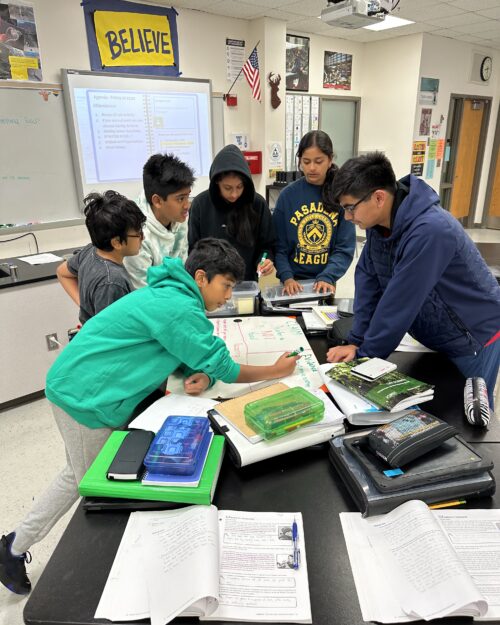
Aaron Mueller has been teaching seventh grade science in Naperville, Illinois, for 25 years. And while his career has taken him through everything from coaching basketball to building an outdoor classroom, his most recent adventure with AEOP’s eCYBERMISSION program has been one of the most rewarding yet.
He started out his career thinking he’d be a high school biology teacher—but one step into a middle school classroom, and everything changed. He’ll be the first to tell you: “I’m a middle schooler at heart.” (His wife and kids would agree.) He’s contributed to national science standards, reviewed curriculum submissions from across the country, and has twice been named a finalist for the Presidential Award for Excellence in Teaching Mathematics and Science.
But if you ask Aaron what drives him, the answer is simple: his students.
That mindset has helped him deeply connect with students, especially when it comes to encouraging them to follow their curiosity—whether it’s in the classroom, on the track, or through a self-driven STEM project that just might change their community.
Introduction to eCYBERMISSION
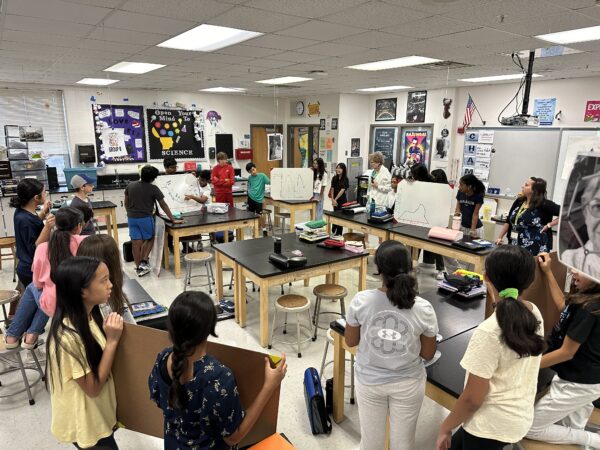 Aaron didn’t set out to become a Team Advisor with eCYBERMISSION. Before the pandemic, a group of students approached him for help on a science project exploring natural antiseptics. He had no idea what eCYBERMISSION was, but he had the biology background, the equipment, and most importantly, he wanted to see his former students succeed, and he said, “Why not?”
Aaron didn’t set out to become a Team Advisor with eCYBERMISSION. Before the pandemic, a group of students approached him for help on a science project exploring natural antiseptics. He had no idea what eCYBERMISSION was, but he had the biology background, the equipment, and most importantly, he wanted to see his former students succeed, and he said, “Why not?”
That first group didn’t make it to the National Judging and Educational Event (NJ&EE), but the follow-up emails from students thanking him for his support stuck with him.
Fast forward a few years, a new group of students approached him with an idea: a mental health app designed to support students returning to school after COVID. They earned a STEM-In-Action Grant, which put funding behind their idea, and were able to present their findings at NJ&EE the following year. Aaron wasn’t a formal Team Advisor at the time, just a mentor, but the experience pulled him in. “It made me want to dig in and really understand what this program was all about.”
Empowering Students to take over their Education
Since then, he’s worked with several teams, and what keeps him coming back is how seriously students take ownership of their ideas. This past year, he advised a group of seventh-grade girls who tackled topics like enzyme function, genetics, and the biomechanics of organic chemistry. These are issues most adults would struggle with. Not only did they do a deep dive, but they ended up as eCYBERMISSION National Finalists.
“The cornerstone of my teaching philosophy is that I can guide, help, and boost you—but it’s that intrinsic motivation in students that amazes me,” he says. “They owned the learning.”
His students weren’t the only ones with big ideas.
He was in awe with some of the teams that competed at this year’s NJ&EE. One team took on a prairie restoration project that combined environmental science with community education. Another created a UV disinfectant system to clean cattle drinking water—an idea born from their own community’s needs. One team designed a device to support people with Alzheimer’s—a project that hit close to home for Aaron, whose mom has primary aphasia, a form of dementia.
“That’s the beauty of this program,” he says. “The problems students choose to solve come straight from their lives and communities. It’s not hypothetical. It matters to them.”
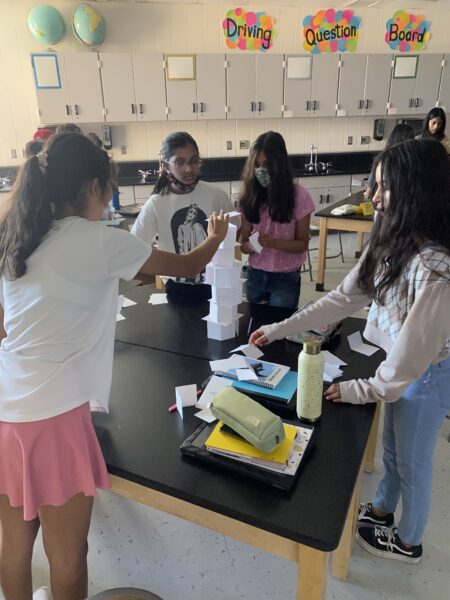
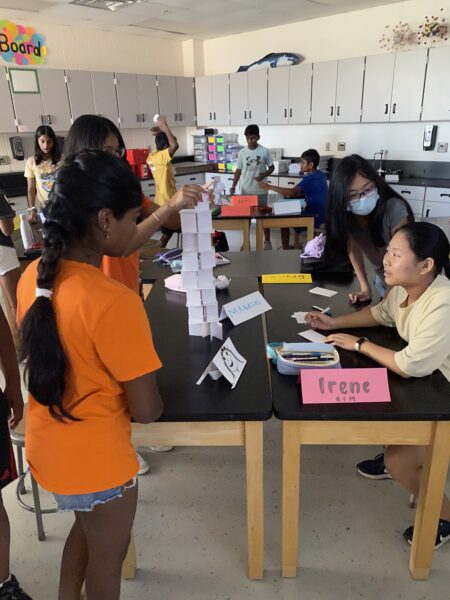
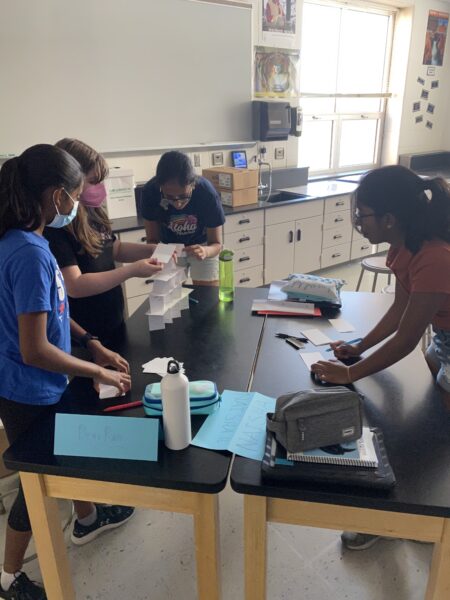
Beyond the Competition
For Aaron, eCYBERMISSION has been just as impactful for him as it has been for his students. It’s made him more creative in his approach to teaching and reaffirmed his belief in giving students the space to explore. With strong administrative and community support in his district, he’s even worked with school leaders to restructure schedules so students can spend more time diving into big ideas and engaging in STEM-based learning.
For his students, eCYBERMISSION has proven to be more than a competition; it’s a platform that fosters teamwork, innovation, curiosity, and problem-solving. “The best part is the community component—students realize they can solve problems that matter to them and to others.”
He’s seen firsthand how powerful it is when students are given space to lead, problem-solve, and connect with peers who are just as driven. “Even though it’s a competition, there’s this huge sense of mutual respect between teams. They ask smart questions, cheer each other on—it’s really cool to watch.”
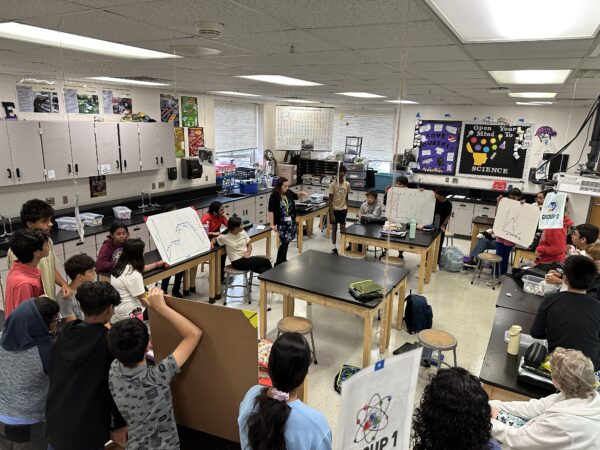 His Advice? Just Try It.
His Advice? Just Try It.
Aaron’s advice to both teachers and students thinking about giving eCYBERMISSION a try: “Go in 100%. Science is about learning through failure. It’s not about whether you succeeded—people want to know what you learned from the process.”
He’s a big Ted Lasso fan, and he brings that same energy to the classroom. “Be curious, not judgmental,” he says. “If students are willing to be curious and try something new, the rewards will surprise them.”
Registration for the 2025-2026 eCYBERMISSION competition will open in August at www.ecybermission.com/register. Learn more about getting involved in eCYBERMISSION here.
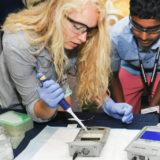
eCYBERMISSION
eCYBERMISSION is a virtual STEM competition for students in grades 6 to 9 that offers students the opportunity to explore STEM in a real-world setting.
More About eCYBERMISSIONFind a Volunteering Opportunity
Visit our Program Volunteers page for a tool to find the best opportunity for you.
